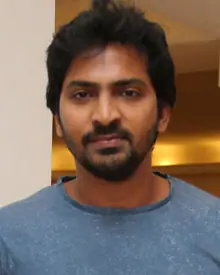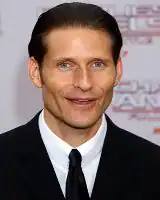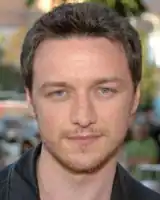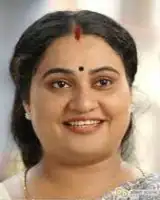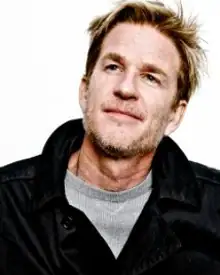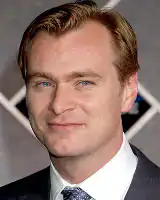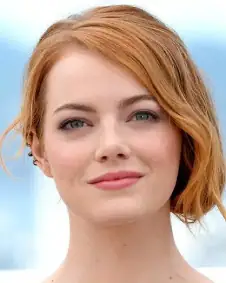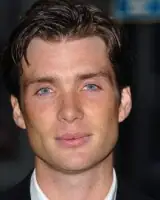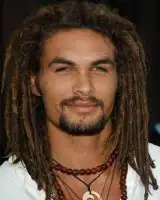X
Sissy Spacek
Actress
Sissy Spacek Biography
Mary Elizabeth "Sissy" Spacek is an Academy Award–winning American actress and singer. Her screen debut was in the 1972 film Prime Cut co-starring Lee Marvin and Gene Hackman.
International prominence would soon follow in the 1970s, as she began starring in a number of critically-acclaimed cult classics for renowned directors such as Terrence Malick, Brian de Palma and Robert Altman. Her most famous performance is as the blood-spattered eponymous heroine of de Palma's 1976 high-school melodrama/horror film Carrie.
In the 1980s, she became a mainstream Hollywood leading lady, winning the Best Actress Oscar in 1980 for her role as country star Loretta Lynn in Coal Miner's Daughter, and garnering three other nominations that decade. Spacek is known mainly as a dramatic actress, but has made occasional (and generally successful) forays into light comedy. The films Spacek has starred in have earned over $700 million worldwide.
Early Life
Spacek was born in Quitman, Texas, the daughter of Virginia Frances (née Spilman) and Edwin Arnold Spacek, Sr., a county agricultural agent. Her paternal grandparents, Mary Cervenka and Arnold A. Spacek (who served as Mayor of Granger, Texas in Williamson County) were of Moravian/Czech/Bohemian descent. Spacek's mother was from the Rio Grande Valley of Texas.
Spacek was given the nickname Sissy by her older brothers. She was greatly affected by the death of her eighteen-year-old brother, Robbie, in 1967. Spacek decided life was too short to waste in college and moved to New York City, hoping to become a singer. Here she lived with her cousin, the actor Rip Torn, and his wife, the actress Geraldine Page.
Career
Spacek started out as a country singer, recording one single ("John, You've Gone Too Far This Time"), about John Lennon, an expression of her shock over the Two Virgins cover under the name 'Rainbo'. With the help of her cousin, actor Rip Torn, she was able to enroll in Lee Strasberg's Actors Studio and then the Lee Strasberg Institute in New York City.
1970s
Her first credited role was in the 1972 cult classic Prime Cut, in which she played Poppy, a young girl sold into sexual slavery. This was a striking debut, Spacek demonstrating her capacity for combining intense sexuality with a child-like blankness, a characteristic that would mark almost all of her work in the seventies. This role led to TV work which included a small role in The Waltons, where she uttered the well known line "When are you going to stop being John Boy and start being John Man?".
But her landmark role of this period and the role that brought her to international attention, came in 1973: Holly in Terrence Malick's Badlands. As Holly, the 15-year old, baton-twirling girlfriend of mass-murderer Kit (played by Martin Sheen), Spacek gave a memorable and sinister performance. Narrating the film's grotesque events in almost comically listless monotone, Holly is a truly bewildering character, apparently devoid of shock, sentiment, or the capacity for an appropriate response to anything. Spacek has described Badlands as the "most incredible" experience of her career. It was on the set of Badlands that Spacek met art director Jack Fisk, whom she would soon marry.
Spacek's iconic and career-defining role came in 1976 with Brian De Palma's Carrie, in which she played Carrie White, a universally bullied and despised teenager with telekinetic powers. Spacek's fragile beauty and painfully vulnerable charm made Carrie a far more sympathetic character than the character in Stephen King's original novel, and her performance is blistering in its emotional honesty.
Yet, incredibly, Spacek had to work hard to persuade director de Palma to engage her for the role, set as he was on an alternative actress, whose identity remains to this day shrouded in mystery. Rubbing Vaseline into her hair, and donning an old sailor-dress her mother had made for her as a child, Spacek turned up to the audition with the odds stacked against her, but blew her competition out of the water.
She was nominated for the Academy Award for Best Actress for her work in the film (Veteran actress Piper Laurie, who played Carrie's religiously maniacal mother Margaret White, was nominated for the Academy Award for Best Supporting Actress).
After Carrie Spacek played the small but amusing role of topless house-keeper Linda Murray in Alan Rudolph's bizarre ensemble piece Welcome to LA (1976), but cemented her reputation as one of the best actresses in independent cinema in Robert Altman's 1977 classic 3 Women. As Pinky Rose, the literally vacant waif who will suck the soul out of Shelley Duvall's tragically superficial Millie Lammoreaux, Spacek would reveal an astonishing range, shifting from quasi-retarded child-oaf to glamorously brittle queen bitch within the film's first hour.
Altman himself was deeply impressed by her performance, stating: 'She's remarkable, one of the top actresses I've ever worked with. Her resources are like a deep well.' Meanwhile, de Palma now enthused: 'Sissy's a phantom. She has this mysterious way of slipping into a part, letting it take over her. She's got a wider range than any young actress I know.' Spacek also helped to finance then-brother-in-law David Lynch's directorial debut, the instantaneous art-house/horror classic Eraserhead (1976), and is thanked for her trouble in the credits of that film.
In 1979's Heart Beat, Spacek played the debonair socialite Carolyn Cassady, slipping (under the influence of John Heard's Jack Kerouac and Nick Nolte's Neal Cassady) into a frustrating combination of drudgery and (mild) debauchery. The film was not a hit, but emerges as a minor gem, insightful into the hypocrisies of the 1950s America and the disappointments of failed transgression.
1980s
Spacek began the decade with an Oscar in 1980 for Coal Miner's Daughter, in which she played country music star Loretta Lynn. Film critic Roger Ebert credited the success that was Coal Miner's Daughter, "to the performance by Sissy Spacek as Loretta Lynn. With the same sort of magical chemistry she's shown before, when she played the high school kid in Carrie, Spacek at twenty-nine has the ability to appear to be almost any age onscreen. Here she ages from about fourteen to somewhere in her thirties, always looks the age, and never seems to be wearing makeup."
Spacek was also nominated for a Grammy Award for her singing on that film's soundtrack album. She followed this with her own country album, Hangin' Up My Heart in 1983; the album spawned one hit single, "Lonely But Only For You," a song written by K.T. Oslin which reached #15 on the Billboard Country chart.
The 1980s were a solid decade for Spacek. She consolidated her position as one of Hollywood's leading actresses, even if the disquieting 'edge' of her seventies persona was dulled somewhat. She starred alongside Jack Lemmon in Costa-Gavras's political thriller Missing (1982), Mel Gibson in the rural drama The River (1984), and Diane Keaton and Jessica Lange in 1986's Crimes of the Heart.
She was nominated for the Best Actress Oscar for all of these roles. Other notable performances of the decade included poignant star turns in husband Jack Fisk's directorial debut Raggedy Man (1981), and opposite Anne Bancroft in the harrowing suicide drama 'Night Mother (1986).
She also showed her lighter side by agreeing to play the voice of the brain in the Steve Martin comedy The Man with Two Brains (1983). By the end of 1986, Spacek retired to her farm in Virginia to raise her children and would not appear in another film until 1990.
1990s
The 1990s saw Spacek slowly come back to Hollywood, after her self-imposed hiatus. She had a supporting role as Kevin Costner's wife in Oliver Stone's JFK (1991), she made a number of comedies, TV movies, and the occasional interesting film.
Most notable were her hilarious turn as the villainous Verena Talbo in 1995's whimsical but underrated ensemble piece The Grass Harp (which reunited her with both Piper Laurie and Jack Lemmon), a fiercely sympathetic supporting performance (opposite Nick Nolte again) as the waitress Margie Fogg in Paul Schrader's terrifying father-son psychodrama Affliction (1997), and a brilliant study in middle-aged, stuttering low confidence, as Rose Straight in David Lynch's charming family epic The Straight Story (1999).
2000s
The last decade has seen Spacek excel in a number of film roles. In 2001, she was nominated again for the Academy Award for Best Actress for her work in Todd Field's In the Bedroom. Her portrayal of a grieving mother consumed by revenge, Ruth Fowler, won extraordinary praise and garnered the New York and Los Angeles Film Critics Awards for Best Actress.
Other notable performances of this decade include her moving portrayal of quietly unfaithful wife Ruth in Rodrigo Garcia's incredible feminist L.A.-based puzzle Nine Lives (2005), and a recent turn as a woman suffering from Alzheimer's in the television movie Pictures of Hollis Woods (2007). In 2008, Spacek had a cameo appearance in the Christmas movie Four Christmases (2008) and a lead role in the independent drama, Lake City (2008).
Personal Life
Spacek married production designer Jack Fisk in 1974. Fisk directed her in the films Raggedy Man and Violets Are Blue and was Oscar-nominated for his production design in 2007's There Will Be Blood. They have two daughters, Schuyler Elizabeth and Madison Fisk. Schuyler Fisk has appeared in several film roles, and is now pursuing a career as a singer. Spacek and her family live on a horse ranch near Charlottesville, Virginia. She is also an ardent crusader for women's rights.
International prominence would soon follow in the 1970s, as she began starring in a number of critically-acclaimed cult classics for renowned directors such as Terrence Malick, Brian de Palma and Robert Altman. Her most famous performance is as the blood-spattered eponymous heroine of de Palma's 1976 high-school melodrama/horror film Carrie.
In the 1980s, she became a mainstream Hollywood leading lady, winning the Best Actress Oscar in 1980 for her role as country star Loretta Lynn in Coal Miner's Daughter, and garnering three other nominations that decade. Spacek is known mainly as a dramatic actress, but has made occasional (and generally successful) forays into light comedy. The films Spacek has starred in have earned over $700 million worldwide.
Early Life
Spacek was born in Quitman, Texas, the daughter of Virginia Frances (née Spilman) and Edwin Arnold Spacek, Sr., a county agricultural agent. Her paternal grandparents, Mary Cervenka and Arnold A. Spacek (who served as Mayor of Granger, Texas in Williamson County) were of Moravian/Czech/Bohemian descent. Spacek's mother was from the Rio Grande Valley of Texas.
Spacek was given the nickname Sissy by her older brothers. She was greatly affected by the death of her eighteen-year-old brother, Robbie, in 1967. Spacek decided life was too short to waste in college and moved to New York City, hoping to become a singer. Here she lived with her cousin, the actor Rip Torn, and his wife, the actress Geraldine Page.
Career
Spacek started out as a country singer, recording one single ("John, You've Gone Too Far This Time"), about John Lennon, an expression of her shock over the Two Virgins cover under the name 'Rainbo'. With the help of her cousin, actor Rip Torn, she was able to enroll in Lee Strasberg's Actors Studio and then the Lee Strasberg Institute in New York City.
1970s
Her first credited role was in the 1972 cult classic Prime Cut, in which she played Poppy, a young girl sold into sexual slavery. This was a striking debut, Spacek demonstrating her capacity for combining intense sexuality with a child-like blankness, a characteristic that would mark almost all of her work in the seventies. This role led to TV work which included a small role in The Waltons, where she uttered the well known line "When are you going to stop being John Boy and start being John Man?".
But her landmark role of this period and the role that brought her to international attention, came in 1973: Holly in Terrence Malick's Badlands. As Holly, the 15-year old, baton-twirling girlfriend of mass-murderer Kit (played by Martin Sheen), Spacek gave a memorable and sinister performance. Narrating the film's grotesque events in almost comically listless monotone, Holly is a truly bewildering character, apparently devoid of shock, sentiment, or the capacity for an appropriate response to anything. Spacek has described Badlands as the "most incredible" experience of her career. It was on the set of Badlands that Spacek met art director Jack Fisk, whom she would soon marry.
Spacek's iconic and career-defining role came in 1976 with Brian De Palma's Carrie, in which she played Carrie White, a universally bullied and despised teenager with telekinetic powers. Spacek's fragile beauty and painfully vulnerable charm made Carrie a far more sympathetic character than the character in Stephen King's original novel, and her performance is blistering in its emotional honesty.
Yet, incredibly, Spacek had to work hard to persuade director de Palma to engage her for the role, set as he was on an alternative actress, whose identity remains to this day shrouded in mystery. Rubbing Vaseline into her hair, and donning an old sailor-dress her mother had made for her as a child, Spacek turned up to the audition with the odds stacked against her, but blew her competition out of the water.
She was nominated for the Academy Award for Best Actress for her work in the film (Veteran actress Piper Laurie, who played Carrie's religiously maniacal mother Margaret White, was nominated for the Academy Award for Best Supporting Actress).
After Carrie Spacek played the small but amusing role of topless house-keeper Linda Murray in Alan Rudolph's bizarre ensemble piece Welcome to LA (1976), but cemented her reputation as one of the best actresses in independent cinema in Robert Altman's 1977 classic 3 Women. As Pinky Rose, the literally vacant waif who will suck the soul out of Shelley Duvall's tragically superficial Millie Lammoreaux, Spacek would reveal an astonishing range, shifting from quasi-retarded child-oaf to glamorously brittle queen bitch within the film's first hour.
Altman himself was deeply impressed by her performance, stating: 'She's remarkable, one of the top actresses I've ever worked with. Her resources are like a deep well.' Meanwhile, de Palma now enthused: 'Sissy's a phantom. She has this mysterious way of slipping into a part, letting it take over her. She's got a wider range than any young actress I know.' Spacek also helped to finance then-brother-in-law David Lynch's directorial debut, the instantaneous art-house/horror classic Eraserhead (1976), and is thanked for her trouble in the credits of that film.
In 1979's Heart Beat, Spacek played the debonair socialite Carolyn Cassady, slipping (under the influence of John Heard's Jack Kerouac and Nick Nolte's Neal Cassady) into a frustrating combination of drudgery and (mild) debauchery. The film was not a hit, but emerges as a minor gem, insightful into the hypocrisies of the 1950s America and the disappointments of failed transgression.
1980s
Spacek began the decade with an Oscar in 1980 for Coal Miner's Daughter, in which she played country music star Loretta Lynn. Film critic Roger Ebert credited the success that was Coal Miner's Daughter, "to the performance by Sissy Spacek as Loretta Lynn. With the same sort of magical chemistry she's shown before, when she played the high school kid in Carrie, Spacek at twenty-nine has the ability to appear to be almost any age onscreen. Here she ages from about fourteen to somewhere in her thirties, always looks the age, and never seems to be wearing makeup."
Spacek was also nominated for a Grammy Award for her singing on that film's soundtrack album. She followed this with her own country album, Hangin' Up My Heart in 1983; the album spawned one hit single, "Lonely But Only For You," a song written by K.T. Oslin which reached #15 on the Billboard Country chart.
The 1980s were a solid decade for Spacek. She consolidated her position as one of Hollywood's leading actresses, even if the disquieting 'edge' of her seventies persona was dulled somewhat. She starred alongside Jack Lemmon in Costa-Gavras's political thriller Missing (1982), Mel Gibson in the rural drama The River (1984), and Diane Keaton and Jessica Lange in 1986's Crimes of the Heart.
She was nominated for the Best Actress Oscar for all of these roles. Other notable performances of the decade included poignant star turns in husband Jack Fisk's directorial debut Raggedy Man (1981), and opposite Anne Bancroft in the harrowing suicide drama 'Night Mother (1986).
She also showed her lighter side by agreeing to play the voice of the brain in the Steve Martin comedy The Man with Two Brains (1983). By the end of 1986, Spacek retired to her farm in Virginia to raise her children and would not appear in another film until 1990.
1990s
The 1990s saw Spacek slowly come back to Hollywood, after her self-imposed hiatus. She had a supporting role as Kevin Costner's wife in Oliver Stone's JFK (1991), she made a number of comedies, TV movies, and the occasional interesting film.
Most notable were her hilarious turn as the villainous Verena Talbo in 1995's whimsical but underrated ensemble piece The Grass Harp (which reunited her with both Piper Laurie and Jack Lemmon), a fiercely sympathetic supporting performance (opposite Nick Nolte again) as the waitress Margie Fogg in Paul Schrader's terrifying father-son psychodrama Affliction (1997), and a brilliant study in middle-aged, stuttering low confidence, as Rose Straight in David Lynch's charming family epic The Straight Story (1999).
2000s
The last decade has seen Spacek excel in a number of film roles. In 2001, she was nominated again for the Academy Award for Best Actress for her work in Todd Field's In the Bedroom. Her portrayal of a grieving mother consumed by revenge, Ruth Fowler, won extraordinary praise and garnered the New York and Los Angeles Film Critics Awards for Best Actress.
Other notable performances of this decade include her moving portrayal of quietly unfaithful wife Ruth in Rodrigo Garcia's incredible feminist L.A.-based puzzle Nine Lives (2005), and a recent turn as a woman suffering from Alzheimer's in the television movie Pictures of Hollis Woods (2007). In 2008, Spacek had a cameo appearance in the Christmas movie Four Christmases (2008) and a lead role in the independent drama, Lake City (2008).
Personal Life
Spacek married production designer Jack Fisk in 1974. Fisk directed her in the films Raggedy Man and Violets Are Blue and was Oscar-nominated for his production design in 2007's There Will Be Blood. They have two daughters, Schuyler Elizabeth and Madison Fisk. Schuyler Fisk has appeared in several film roles, and is now pursuing a career as a singer. Spacek and her family live on a horse ranch near Charlottesville, Virginia. She is also an ardent crusader for women's rights.
Celeb Birthdays
-
Vaibhav Reddy Apr 20
-
Anjala Zaveri Apr 20
-
Crispin Glover Apr 20
-
Carmen Electra Apr 20
-
James McAvoy Apr 21
-
Jangiri Madhumitha Apr 21
-
Bindu Panicker Apr 21
Enable




 Click it and Unblock the Notifications
Click it and Unblock the Notifications



